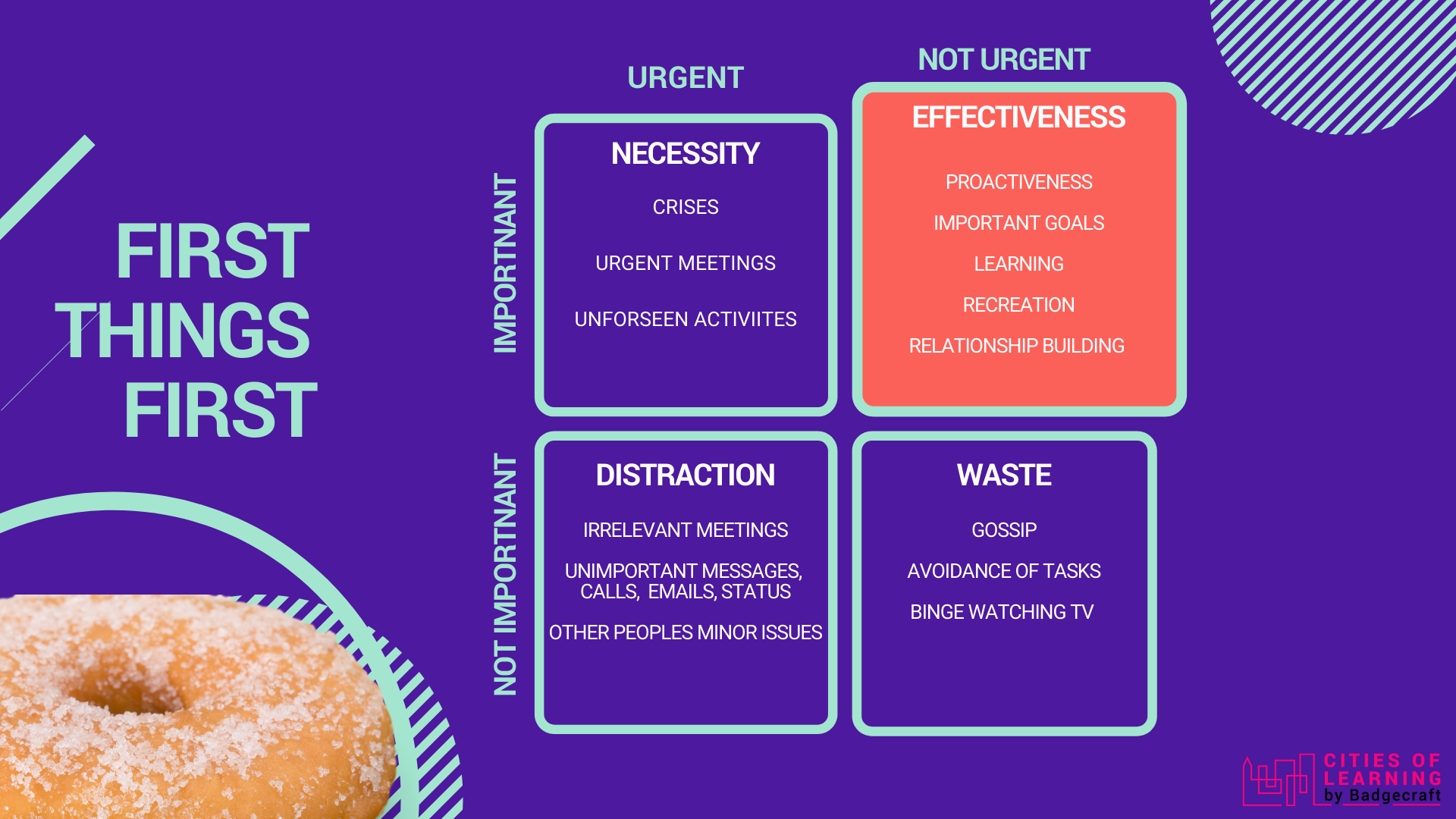1
Habit 3: First things first
Habit 3: First things first
Σχετικά
“Put First Things First” is about turning your vision and values into action by focusing on what truly matters. It means organizing your time and energy around priorities rather than reacting to urgent but less important demands. While Habit 2 (Begin with the End in Mind) is about defining what’s important, Habit 3 is about living it — through discipline, balance, and conscious choice.
In youth work, this habit encourages both youth workers and young people to make intentional decisions about how they use their time, attention, and effort. It invites reflection on what tasks, relationships, and goals align with core values — and which distractions or pressures might pull us away from them.
Putting first things first also means learning to say “no” to things that do not support our purpose, so we can say “yes” to what really counts. It helps youth workers manage responsibilities effectively, set boundaries, and model healthy balance and focus for young people.
When young people learn to prioritize what is meaningful over what is merely urgent, they gain skills in self-management, planning, and resilience — essential for personal growth and leadership.
Decide which items in life or the tasks that you have to do are not-important, important, urgent or not-urgent. The most effective way of living is to live mostly in the field not ‘urgent - important’.

Αποκτήστε το σήμα δραστηριότητας
Prioritiser Αποκτήστε αυτό το σήμα
The person who owns this badge…
...learned to distinguish between what is important and what is merely urgent.
...practiced prioritizing tasks and decisions that align with their values and goals.
...applied the “put first things first” mindset to manage time, energy, and focus effectively in their work and life.
The holder of this badge has worked independently at awareness at putting first things first. In collaboration with a group of international youthwork colleagues, the holder has worked at the sociocultural context of this competence during the international training course "Pathways to creative youthwork".
Πρέπει να ολοκληρώσετε όλες τις εργασίες για να αποκτήσετε το σήμα
Εργασίες
Αρ. Εργασίας 1
Τα στοιχεία επαληθεύτηκαν από: Ένας διαχειριστής έργου
Reflect on today’s learnings:
- What are the main priorities in your personal and professional life right now?
- What challenges do you face when trying to focus on what’s truly important?
- How does practicing “put first things first” help you manage your time, energy, and attention more effectively?
Αρ. Εργασίας 2
Τα στοιχεία επαληθεύτηκαν από: Ένας διαχειριστής έργου
How can you use your learnings in your work with young people?
- How can you help young people identify and prioritize what really matters to them?
- What tools or methods could you use to support them in balancing responsibilities, goals, and wellbeing?
- How can modelling this habit in your own practice inspire young people to act with focus and purpose?
Διοργανωτές
Beasily
Χρησιμοποιείται σε playlists
Pathways to Creative Youthwork
BeasilyΑλλαγή γλώσσας:

